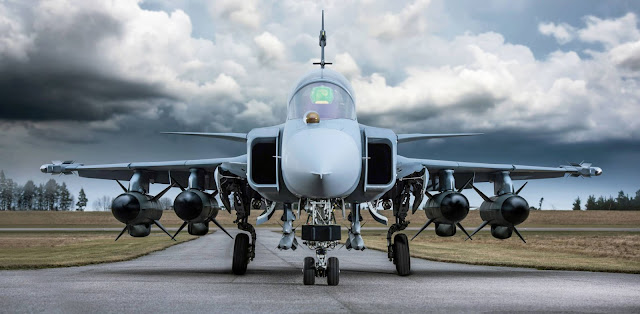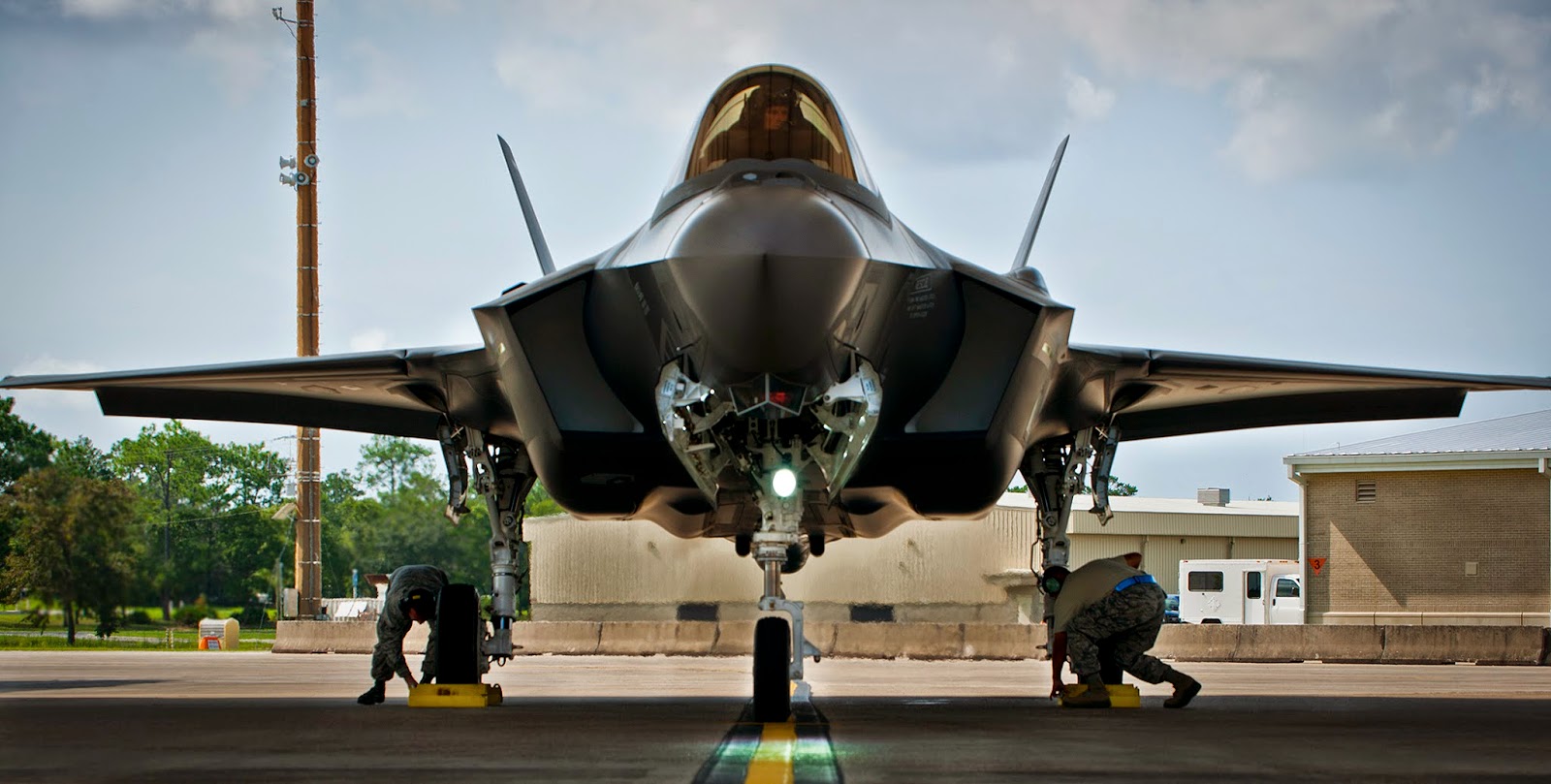"WORLD WAR C"
Note: I do know that there is no shortage of Coronavirus coverage and that some may come here looking for an escape. Please understand that the current predicament CHANGES EVERYTHING. Whatever happens from this point forward will be effected by the effects of COVID-19.
My experience a frontline healthcare worker gives me a certain perspective on this situation, one that I believe should be shared.
I promise to get back to talking about fighter jets very soon. I typically take about a week or so research a post, another to write and edit. I have one article "in the can" with another in the works and a few more in the rough early stages. They will all be posted in the coming weeks after I find time to rework them to reflect the pandemic and its effect on socio-economic policies around the world.
The 20th century saw two world wars. Both of which decimated the worlds' population, overturned the global economy, and altered the course of history. Neither was predicted with any great certainty, even if the causes seem obvious in hindsight. Both resulted in a fundamental shift in the geopolitical landscape. Former empires like Britain would struggle just to survive, while younger upstart nations would rise to become superpowers.
The pattern is similar to both World Wars. What appears to be a localized "dust up" quickly spreads to the surrounding areas. Far-away nations act concerned, but assure their citizens that "it'll never reach here". Decisive action is delayed out of fear that it would "hurt the economy". This complacency is then proven horribly wrong as soon as the conflict arrives on home shores.
Soon, the same leaders that encouraged its citizens to "go about their business" are now forced to enforce emergency measures. Borders are closed. Businesses are shuttered. Factories halt production of consumer goods and are quickly converted to building whatever resources are required for the war effort. Every able-bodied person is encouraged to enlist into the fight. Every citizen is expected to do their part, no matter how small, to help ensure lasting victory.
The first few months are the hardest. It takes time to convert factories that made cars into building tanks. It takes time to build those tanks. It takes time to recruit and train new soldiers. Those first few months of the war, stockpiles are quickly depleted. Soldiers are told to "make do" with what they have, not what they need.
And then the casualties start coming in.
Does all this sound familiar?
We have all learned just how unpredictable life can be. We have also learned of how truly interconnected we all are.
No one has learned this more than health care workers.
Working in healthcare is always stressful. The job is unpredictable, the hours are long, and emotional toll is high. One is constantly surrounded by death and disease. A constant challenge of the job is maintaining compassion while simultaneously numbing themselves to tragedy. On top of all that, healthcare workers must operate in a cash-strapped system that has to make do with the bare minimum of personnel and equipment.
Now imagine those same healthcare workers when a pandemic arrives.
"But that's what they signed up for!" some people declare.
No one enters healthcare hoping to work in the middle of a pandemic. No soldier enlists into the army hoping to fight World War III. They know there is a remote possibility, and do their best to prepare for that day that hopefully never comes. The truth is, however, NOTHING can fully prepare you for that unprecedented scenario.
Healthcare workers are now having to deal with possibly the worst health crisis of all time with the resources THEY HAVE, not the resources THEY NEED. This will, and already has, resulted in tragedy. It will continue to do so until the resources needed are provided. This is happening on a global scale.
An army needs tanks, guns, and bullets. It also needs soldiers willing to put themselves in harm's way in order to protect others. Long-term, it needs researchers and generals that can come up with better weapons and more effective strategies to use against the enemy.
Much like the two World Wars, a fundamental shift has to take place. Our entire society must be tasked with a single goal: PUT A STOP TO THE DANGER.
Every little bit helps. In the same vein, seemingly innocent acts can have huge ramifications. A single person can infect dozens of others. Hoarding personal protective equipment (PPE) for personal use can endanger the lives of those who truly need it.
The Coronavirus pandemic has changed all of our lives. Even when the immediate danger is over and a vaccine is discovered, its ramifications will be felt for decades to come. Life as we know it will change. The social, economic, and political landscape will be quite different.
So let us give a proper name to the fight against Coronavirus: World War C.
My experience a frontline healthcare worker gives me a certain perspective on this situation, one that I believe should be shared.
I promise to get back to talking about fighter jets very soon. I typically take about a week or so research a post, another to write and edit. I have one article "in the can" with another in the works and a few more in the rough early stages. They will all be posted in the coming weeks after I find time to rework them to reflect the pandemic and its effect on socio-economic policies around the world.
world war
nounDefinition of world war
: a war engaged in by all or most of the principal nations of the world-Mirriam Webster dictionary
The 20th century saw two world wars. Both of which decimated the worlds' population, overturned the global economy, and altered the course of history. Neither was predicted with any great certainty, even if the causes seem obvious in hindsight. Both resulted in a fundamental shift in the geopolitical landscape. Former empires like Britain would struggle just to survive, while younger upstart nations would rise to become superpowers.
The pattern is similar to both World Wars. What appears to be a localized "dust up" quickly spreads to the surrounding areas. Far-away nations act concerned, but assure their citizens that "it'll never reach here". Decisive action is delayed out of fear that it would "hurt the economy". This complacency is then proven horribly wrong as soon as the conflict arrives on home shores.
Soon, the same leaders that encouraged its citizens to "go about their business" are now forced to enforce emergency measures. Borders are closed. Businesses are shuttered. Factories halt production of consumer goods and are quickly converted to building whatever resources are required for the war effort. Every able-bodied person is encouraged to enlist into the fight. Every citizen is expected to do their part, no matter how small, to help ensure lasting victory.
The first few months are the hardest. It takes time to convert factories that made cars into building tanks. It takes time to build those tanks. It takes time to recruit and train new soldiers. Those first few months of the war, stockpiles are quickly depleted. Soldiers are told to "make do" with what they have, not what they need.
And then the casualties start coming in.
Does all this sound familiar?
The Coronavirus pandemic has hit the world's population in a way not seen before in our lifetime. Within the span of few weeks, life as we know it has changed. Entire populations have been told to self isolate. "Social distancing" has become the order of the day. Multi-billion dollar industries have ground to a halt. Tourism has been temporarily snapped out of existence. Blockbuster movies have been shelved for a later date. Restaurants and shops are forced to close. Seemingly overnight, a large section of the population have found themselves unemployed.“You go to war with the army you have, not the army you might want or wish to have at a later time.”
―
We have all learned just how unpredictable life can be. We have also learned of how truly interconnected we all are.
No one has learned this more than health care workers.
Working in healthcare is always stressful. The job is unpredictable, the hours are long, and emotional toll is high. One is constantly surrounded by death and disease. A constant challenge of the job is maintaining compassion while simultaneously numbing themselves to tragedy. On top of all that, healthcare workers must operate in a cash-strapped system that has to make do with the bare minimum of personnel and equipment.
Now imagine those same healthcare workers when a pandemic arrives.
"But that's what they signed up for!" some people declare.
No one enters healthcare hoping to work in the middle of a pandemic. No soldier enlists into the army hoping to fight World War III. They know there is a remote possibility, and do their best to prepare for that day that hopefully never comes. The truth is, however, NOTHING can fully prepare you for that unprecedented scenario.
Healthcare workers are now having to deal with possibly the worst health crisis of all time with the resources THEY HAVE, not the resources THEY NEED. This will, and already has, resulted in tragedy. It will continue to do so until the resources needed are provided. This is happening on a global scale.
An army needs tanks, guns, and bullets. It also needs soldiers willing to put themselves in harm's way in order to protect others. Long-term, it needs researchers and generals that can come up with better weapons and more effective strategies to use against the enemy.
Much like the two World Wars, a fundamental shift has to take place. Our entire society must be tasked with a single goal: PUT A STOP TO THE DANGER.
Every little bit helps. In the same vein, seemingly innocent acts can have huge ramifications. A single person can infect dozens of others. Hoarding personal protective equipment (PPE) for personal use can endanger the lives of those who truly need it.
The Coronavirus pandemic has changed all of our lives. Even when the immediate danger is over and a vaccine is discovered, its ramifications will be felt for decades to come. Life as we know it will change. The social, economic, and political landscape will be quite different.
So let us give a proper name to the fight against Coronavirus: World War C.





Comments
Post a Comment